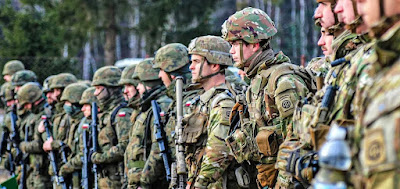An extract from the article, The Mass-Media Memory Hole.
Knowledge that sheds light on how the world operates politically and economically is kept to a minimum by the ‘mainstream’ media. George Orwell’s famous ‘memory hole’ from ‘Nineteen Eighty-Four’ signifies the phenomenon brilliantly. Winston Smith’s work for the Ministry of Truth requires that he destroys documents that contradict state propaganda:
‘When one knew that any document was due for destruction, or even when one saw a scrap of waste paper lying about, it was an automatic action to lift the flap of the nearest memory hole and drop it in, whereupon it would be whirled away on a current of warm air to the enormous furnaces which were hidden somewhere in the recesses of the building’.
(Orwell, ‘Nineteen Eighty-Four’, 1949, Penguin edition, 1982, p. 34)
The interests of power, hinging on the domination of an ignorant population, are robustly maintained:
Australian political analyst Caitlin Johnstone noted recently that:
‘Arguably the single most egregious display of war propaganda in the 21st century occurred last year, when the entire western political/media class began uniformly bleating the word “unprovoked” in reference to Russia’s invasion of Ukraine.’Pointing out that the West ‘provoked’ Russia is not the same as saying that the Russian invasion of Ukraine was justified. In fact, we were clear in our first media alert following the invasion:
‘Russia’s attack is a textbook example of “the supreme crime”, the waging of a war of aggression.’As Noam Chomsky pointed out, the 2003 invasion of Iraq was totally unprovoked, but:
‘nobody ever called it “the unprovoked invasion of Iraq.” In fact, I don’t know if the term was ever used; if it was, it was very marginal. Now you look it up on Google, and hundreds of thousands of hits. Every article that comes out has to talk about the unprovoked invasion of Ukraine. Why? Because they know perfectly well it was provoked. That doesn’t justify it, but it was massively provoked.’Bryce Greene, a media analyst with US-based Fairness and Accuracy In Reporting (FAIR), observed that US policy makers regarded a war in Ukraine as a desirable objective:
‘One 2019 study from the RAND Corporation—a think tank with close ties to the Pentagon—suggested that an effective way to overextend and unbalance Russia would be to increase military support for Ukraine, arguing that this could lead to a Russian invasion.’The rationale was outlined in a Wall Street Journal opinion piece by John Deni of the Atlantic Council, a US think tank with close links to the White House and the arms industry, headlined ‘The Strategic Case for Risking War in Ukraine’. Greene summarised the logic:
‘Provoking a war would allow the US to impose sanctions and fight a proxy war that would grind Russia down. Additionally, the anti-Russian sentiment that resulted from a war would strengthen NATO’s resolve.’Greene added:
‘The consensus among policymakers in Washington is to push for endless conflict, no matter how many Ukrainians die in the process. As long as Russia loses men and material, the effect on Ukraine is irrelevant. Ukrainian victory was never the goal.’As Johnstone emphasised in her analysis:
‘It’s just a well–documented fact that the US and its allies provoked this war in a whole host of ways, from NATO expansion to backing regime change in Kyiv to playing along with aggressions against Donbass separatists to pouring weapons into Ukraine. There’s also an abundance of evidence that the US and its allies sabotaged a peace deal between Russia and Ukraine in the early weeks of the war in order to keep this conflict going as long as possible to hurt Russian interests.’
She continued:
"We know that western actions provoked the war in Ukraine because many western foreign policy experts spent years warning that western actions would provoke a war in Ukraine.’But you will search in vain for substantive reporting of such salient facts and relevant history – see also this piece by FAIR – in ‘mainstream’ news media.















